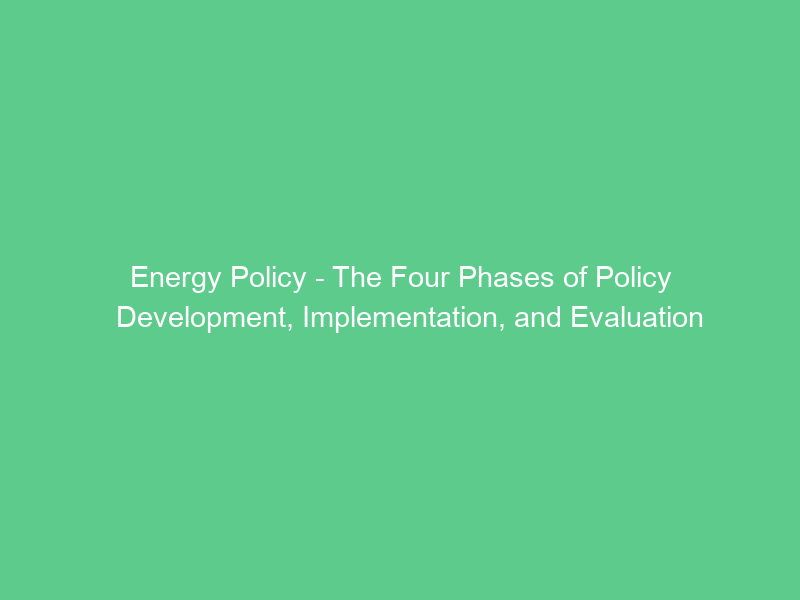Prudent management of energy resources and development of renewable energy technologies are central aspects of energy policy. By effectively using them to reduce greenhouse gas emissions without raising consumer costs significantly, such policies will play a key role in helping mitigate global warming.
Government energy technology programs should shift towards conceptual and technical research rather than loan guarantees, production tax credits, R&D mandates or any other attempts at early commercialization. Cost-effective energy efficiency programs have proven their worth by saving energy.
Policy Analysis
Policy analysis involves identifying potential policy options, comparing them, and selecting the one with the highest likelihood of meeting our budgetary needs. An effective policy analysis requires conducting both qualitative and quantitative research – such as personal interviews with those impacted by proposed policies – in order to understand how they will impact individuals and communities alike as well as whether proposed policies will meet budgetary goals and remain cost-effective.
A bibliometric analysis of policy-related articles published in journals related to medicine, ecology and energy revealed that carbon emissions, environmental impacts of economic development and urbanization and energy consumption due to rising demands for sustainable development were the top topics. An overlay network visualization demonstrated that scholars had dedicated substantial attention to these issues recently – as evidenced by collaboration networks of scholars from different countries; universities from the USA, UK and China being especially active participants in policy analysis activities.
Policy Development
Policy development entails both the identification and examination of problems and their significance as well as an exploration of policy alternatives to address these problems. It involves both technical or instrumental exploration as well as critical evaluation of assumptions underlying potential policies with longer term implications, including an elaboration process facilitated through policy models such as these.
Policy goals provide a roadmap, helping guide decision-making and providing clear direction for actions. In addition, they ensure policies align with desired outcomes and that progress towards these goals can be tracked over time.
Like Agenda Building and Policy Formation stages, Policy Development requires repeated cycles before any decision can be reached (see Round Model). New analyses or alternative approaches could cause policymakers to postpone making a decision until later in the process.
Policy Implementation
Policy implementation refers to the process of carrying out a chosen policy option through various government agencies, whether that means creating new regulations, introducing new programs or services or amending existing ones. A variety of factors can determine whether a policy can be successfully put into motion during its implementation stage.
At this stage, it is crucial that stakeholders are involved throughout the policy making process to ensure that it accurately reflects the needs of impacted communities and identifies further solutions which could address any existing issues while considering their feasibility and impacts. To accomplish this effectively, stakeholders must be involved throughout this phase so as to be properly informed. For this to occur successfully, stakeholders should be engaged and kept updated throughout the whole policy development cycle to keep all parties fully informed.
Prior research suggests that policy implementation success depends on certain essential enabling conditions. These include:
Policy Evaluation
Policy evaluation is a fundamental element of policy development that assesses its effect on intended results, unintended side-effects and other consequences of implementation. Policy evaluation ideally provides vital feedback into policy development processes by helping bridge any gaps between initial goals and actual results; formative policy evaluation or summative evaluation processes can take place during or post implementation respectively.
Policy analysis and evaluation both provide guidance for decision-making processes; however, policy evaluation differs in its focus and methods of application. Policy analysis typically looks at potential outcomes of proposed policies while evaluation aims to evaluate implemented ones against objectives set for them and public interest considerations. Evaluators need to ensure policy influence begins early in policy formation process by offering incentives to policy-makers to seek and use evaluative knowledge – something many sessions at AEW addressed as part of its purpose as more than merely an accountability tool for politicians.

